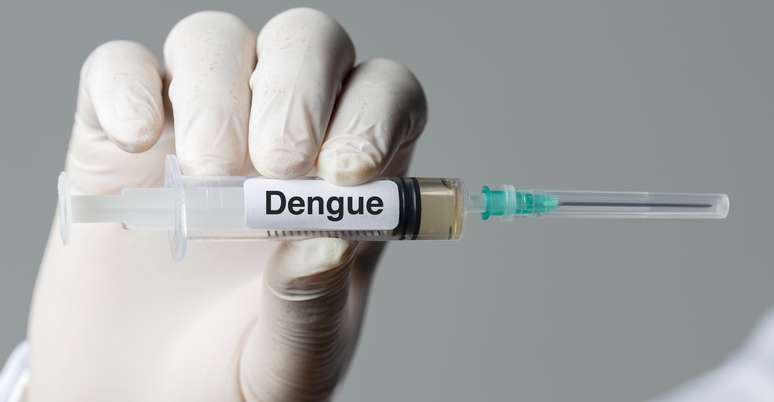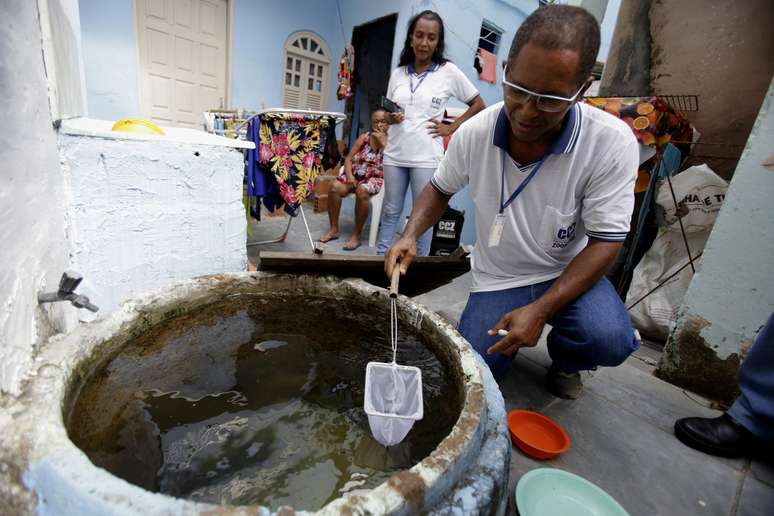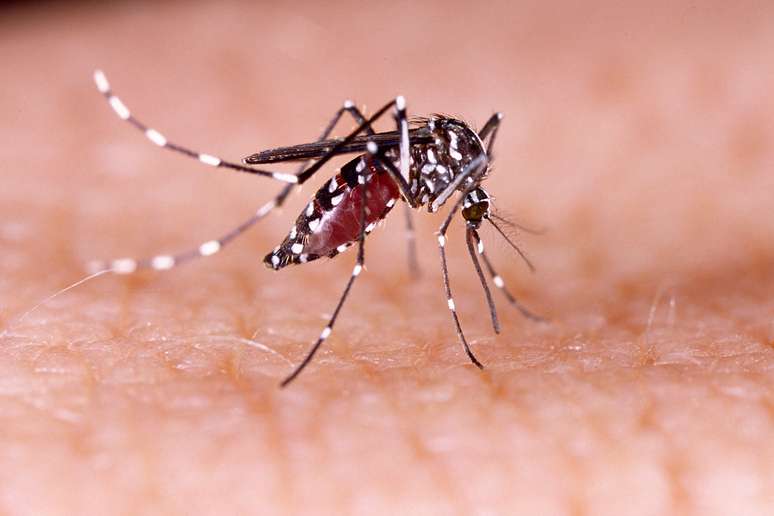The most severe form of the disease can lead to death if not treated quickly; Understand the main symptoms of dengue hemorrhagic fever
html[data-range=”xlarge”] figure image img.img-463aa38efeaab006deda176e8b4d5623csmr8b7f { width: 774px; height: 516px; }HTML[data-range=”large”] figure image img.img-463aa38efeaab006deda176e8b4d5623csmr8b7f { width: 548px; height: 365px; }HTML[data-range=”small”] figure image img.img-463aa38efeaab006deda176e8b4d5623csmr8b7f, html[data-range=”medium”] figure image img.img-463aa38efeaab006deda176e8b4d5623csmr8b7f { width: 564px; height: 376px; }
An endemic disease in Brazil, dengue is a constant concern for public agencies. Its more serious version, dengue hemorrhagic fever, affects one in 20 people infected by the mosquito. Aedes Aegypti and can lead to death, according to the US Centers for Disease Control and Prevention (CDC).
This month, Jhonatan Wiliantan da Silva died of dengue hemorrhagic fever and his story aired on TV Globo’s Domingão com Huck, this Sunday (26) and had repercussions on social networks.
In the light of these data and the increase in cases on the national territory, it is important to understand how the disease manifests itself, how it is treated and what the preventive measures are.
What is dengue hemorrhagic fever?
Dengue is a type of infection characterized by acute fever. The arbovirus that transmits it belongs to the family Flaviviridae, in the genus Flavivirus. It usually affects humans bitten by the female Aedes Aegypti mosquito (when the insect is infected) and can awake with mild to severe symptoms.
The most worrying cases, which can lead to death, are classified as hemorrhagic dengue, when the disease evolves between the third and seventh day of symptoms. According to Fiocruz, patients affected by the condition have hemorrhagic, neurological manifestations, circulatory collapse and seizures.
The risk of developing the severe form of the disease is greatest for those who have a history of previous infections – this is possible because there are four subtypes of the virus (DENV-1, DENV-2, DENV-3 and DENV-4). Pregnant women, children, the elderly, and people with chronic illnesses are also at a higher risk of complications from dengue.
What are the main symptoms of dengue hemorrhagic fever?
People with dengue hemorrhagic fever may have the same symptoms as the simple form of the disease, such as a sudden high fever, headache, spots and rashes, nausea, vomiting, tiredness, and bone pain. The severe version of the disease enhances these sensations and also awakens:
- severe abdominal pain
- blood in the stools, vomit and/or gums and nose
- fatigue
- loss of consciousness
- respiratory difficulties
- drop in blood pressure
When any of these symptoms appear, the patient is advised to seek immediate medical attention.
Treatments
Since there is no specific medicine to fight the virus, dengue treatment is done with pain relievers and antipyretics, as well as plenty of hydration.
Typically, the individual with mild to moderate forms of the disease can be treated at home, at rest, and under medical supervision. Cases of dengue hemorrhagic fever require hospitalization.

Earlier this month of March, the National Health Surveillance Agency (Anvisa) approved a new vaccine against dengue, the first recommended for both those who have had the disease and those who have never developed it.
Called Qdenga, the vaccine from the Japanese company Takeda Pharma was 80.2% effective against the disease 12 months after the second dose was applied. According to Anvisa, the number of hospitalizations has dropped to 90%.
A priori, the vaccine is recommended for people between 4 and 60 years of age. Pregnant and breastfeeding women should not be vaccinated.
With agency approval, the immunizer can now be marketed by the Unified Health System (SUS) and private network, but has not yet been included in the Ministry of Health’s immunization schedule.
Doubts
-
How long does dengue hemorrhagic fever last?
It usually takes 3 to 15 days for symptoms to appear. The picture can worsen, leading to death rapidly, from 12 to 24 hours, but it can also rapidly diminish, with appropriate antishock therapy.
-
Does dengue hemorrhagic fever have a cure?
For the recovery of the individual, the disease must be treated immediately, under medical supervision and administration of therapies that favor the symptoms of the disease.
-
Is it possible to have dengue hemorrhagic fever at first contamination?
YES. It is more common to develop the severe form when the individual has already been infected with one of the forms of the virus, but it is possible to suffer serious complications from the first infection.
Prevention
The main way to prevent dengue hemorrhagic fever is to control the proliferation of mosquitoes. This is done by the health companies through the elimination of breeding sites and inspection and awareness actions so that citizens do not leave basins and other places with stagnant water uncovered.

It is also recommended that residents and passers-by in high-transmission areas wear long-sleeved shirts and trousers, as well as repellents. Once available to the whole population, the vaccine will also be an important measure to prevent the virus.
Source: Terra
Ben Stock is a lifestyle journalist and author at Gossipify. He writes about topics such as health, wellness, travel, food and home decor. He provides practical advice and inspiration to improve well-being, keeps readers up to date with latest lifestyle news and trends, known for his engaging writing style, in-depth analysis and unique perspectives.








